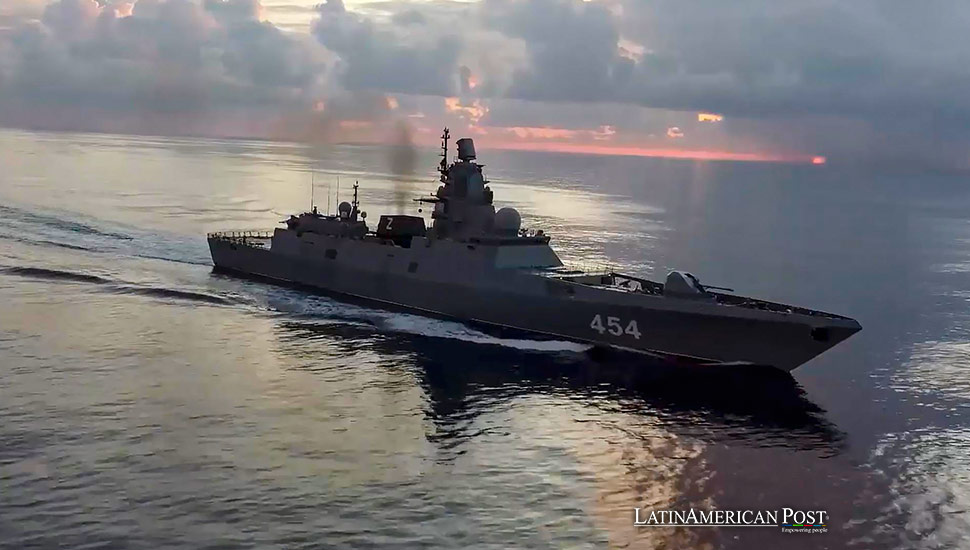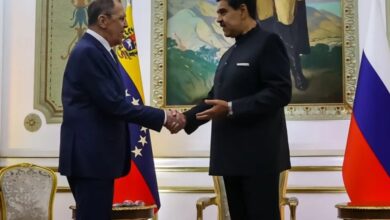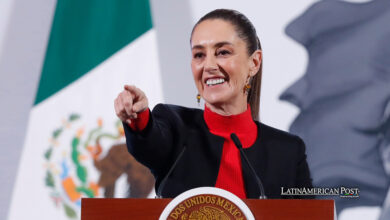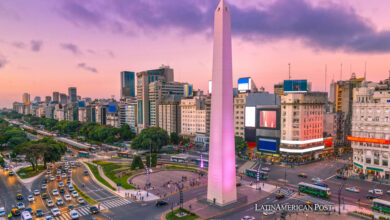Russian Naval Visit to Cuba Amid Rising Tensions

Four Russian naval vessels, including a nuclear-powered submarine, docked in Havana as a show of force amid the Ukraine conflict. The visit highlights the enduring ties between Russia and Cuba while raising global strategic concerns.
In a display of military might and strategic posturing, four Russian naval vessels recently arrived in Cuba, including a nuclear-powered submarine, a symbol of Russia’s advanced military capabilities. The fleet anchored at Havana Bay, just 90 miles from the US state of Florida, marking a significant geopolitical maneuver amid ongoing tensions with the West over the war in Ukraine. The arrival of these vessels, which carry advanced weaponry such as hypersonic Zircon missiles, has sparked international interest and concern.
Russia’s defense ministry confirmed that the Admiral Gorshkov frigate and the Kazan submarine are equipped with cutting-edge weapons, including Zircon hypersonic missiles. These vessels had previously conducted missile drills in the Atlantic, showcasing their formidable capabilities. Despite assurances from Cuba’s foreign ministry that none of the ships are armed with nuclear weapons and that their visit poses no threat to the region, the timing and nature of this visit have raised eyebrows globally, underlining the strategic implications of this move.
The US has closely monitored the Russian fleet’s movements, using sea drones to shadow the vessels as they approached Cuba. White House national security adviser Jake Sullivan downplayed the visit, stating that such naval exercises are routine and that the US does not anticipate any missile transfers to Cuba. However, experts like William Leogrande, a professor at American University, suggest that the visit serves as a reminder from Moscow to Washington about its ability to project power close to US shores, potentially straining US-Russia relations.
Historical and Current Ties Between Cuba and Russia
The historical context of Russian-Cuban relations, with its echoes of the Cold War, is a fascinating backdrop to the recent events. The Cuban missile crisis of 1962, a pivotal moment in global history, saw the Soviet Union placing ballistic missiles in Cuba in response to US missile deployments in Turkey, nearly leading to nuclear war. Today, the rekindling of ties between the two nations comes amid Cuba’s worst social and economic crisis in decades, characterized by shortages of essential goods and widespread public discontent.
Cuban President Miguel Diaz-Canel’s recent visits to Russia, including his attendance at a military parade and expressions of support for Russian forces in Ukraine, underscore the strengthening alliance. Russia’s recent delivery of 90,000 metric tons of oil to Cuba and promises to assist in various sectors, from infrastructure to renewable energy, highlight the deepening economic ties driven by mutual necessity rather than ideological alignment. The visit also raises questions about the potential impact on the ongoing crisis in Ukraine, as it could signal Russia’s willingness to escalate tensions with the West.
The arrival of the Russian naval fleet was met with a mix of curiosity and concern in Havana. While curious onlookers and residents lined the Malecon seafront to witness the spectacle, waving flags and taking photos, US officials maintained a watchful eye. Despite assurances from both Cuban and US authorities that the visit poses no threat, the underlying message of strategic defiance is clear, adding to the tension and uncertainty surrounding the situation.
The Cuban government, seeking to reassure its citizens and the international community, emphasized that the visit aligns with standard practices of welcoming naval vessels from friendly nations. Nonetheless, the geopolitical ramifications are significant, as this show of force bolsters the Cuban regime while sending a message of solidarity and strength to its allies, including Venezuela. The reactions of other Latin American countries, such as Brazil and Argentina, are also worth noting, as they could indicate a shift in regional dynamics.
A New Chapter in an Old Alliance
The Russian naval visit to Cuba is a potent reminder of the enduring strategic alliances and historical ties that continue to shape global geopolitics. As Russia navigates its contentious involvement in Ukraine, such displays of military presence near US territory underscore the complexities of international relations. The visit also has the potential to shift the balance of power in the region, as it could strengthen Russia’s influence in Latin America and challenge US dominance.
Also read: Cuban Recruitment for Russian Army: Economic Desperation at Play
For Cuba, the visit offers more than just a semblance of support amid its ongoing economic struggles. It also highlights the importance of its alliances in maintaining stability and potentially securing economic and strategic benefits from Russia. As the vessels remain docked in Havana until June 17, the world watches closely, aware that these maneuvers are anything but routine in the broader context of current global hostilities.





